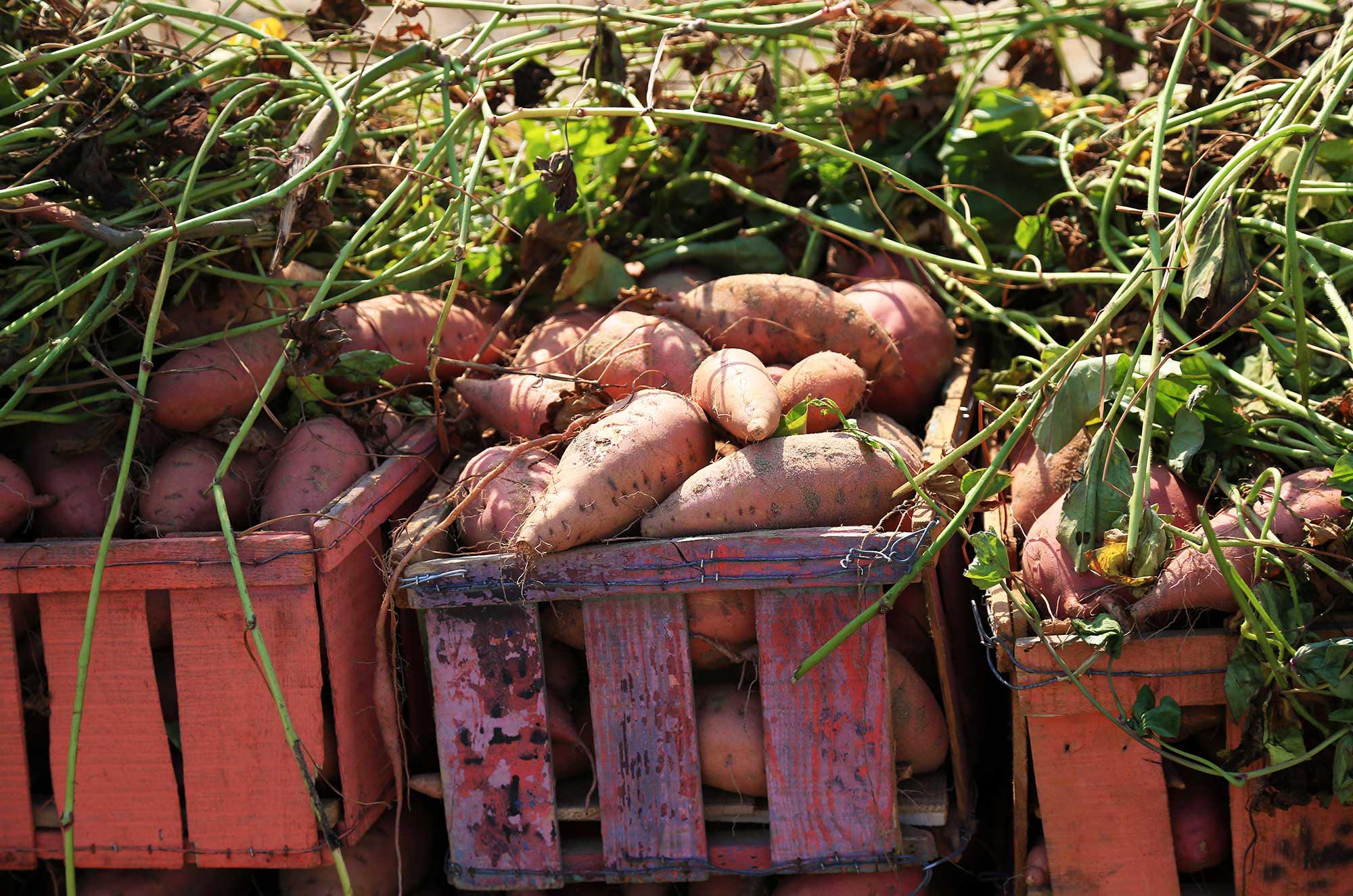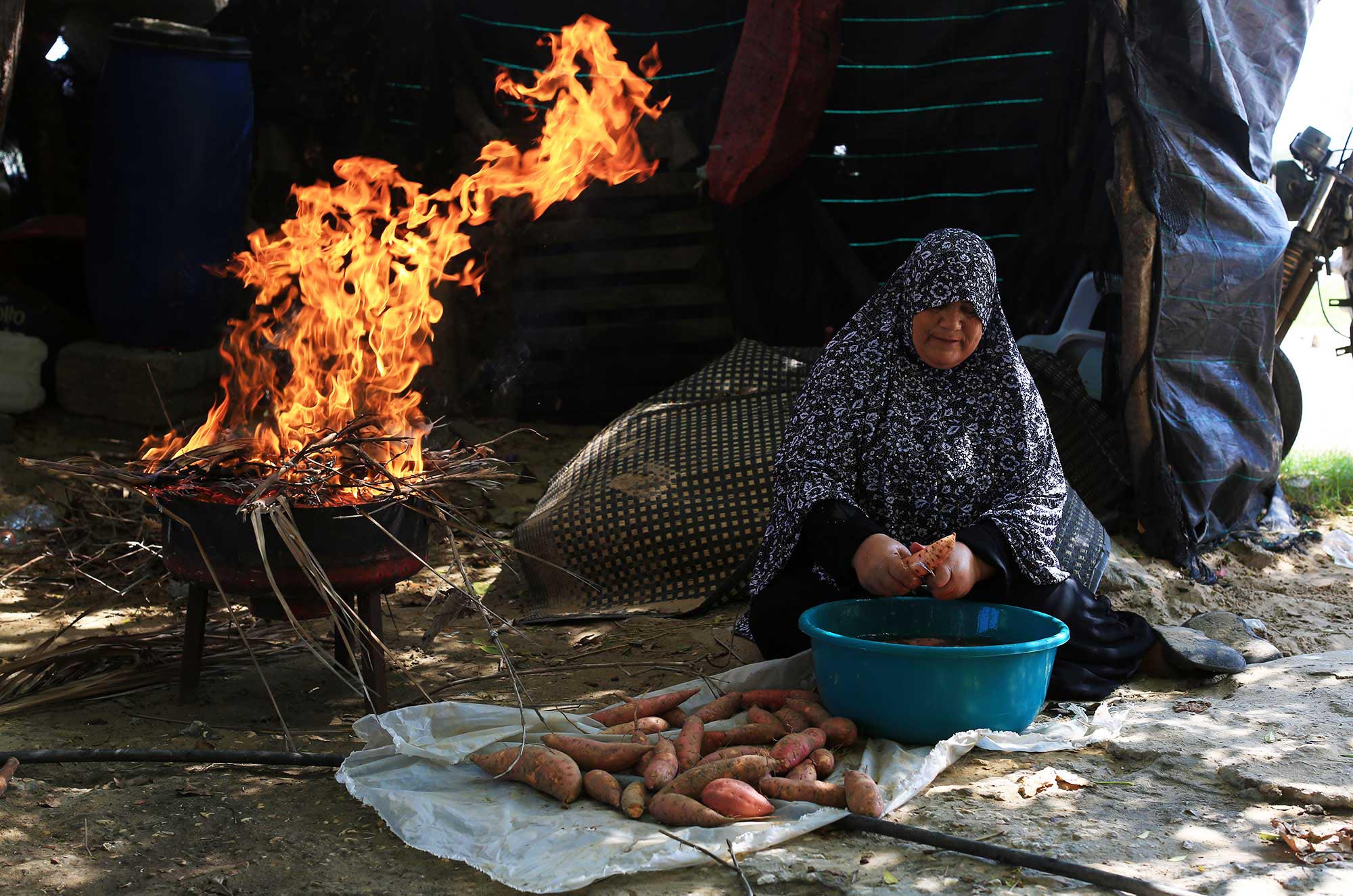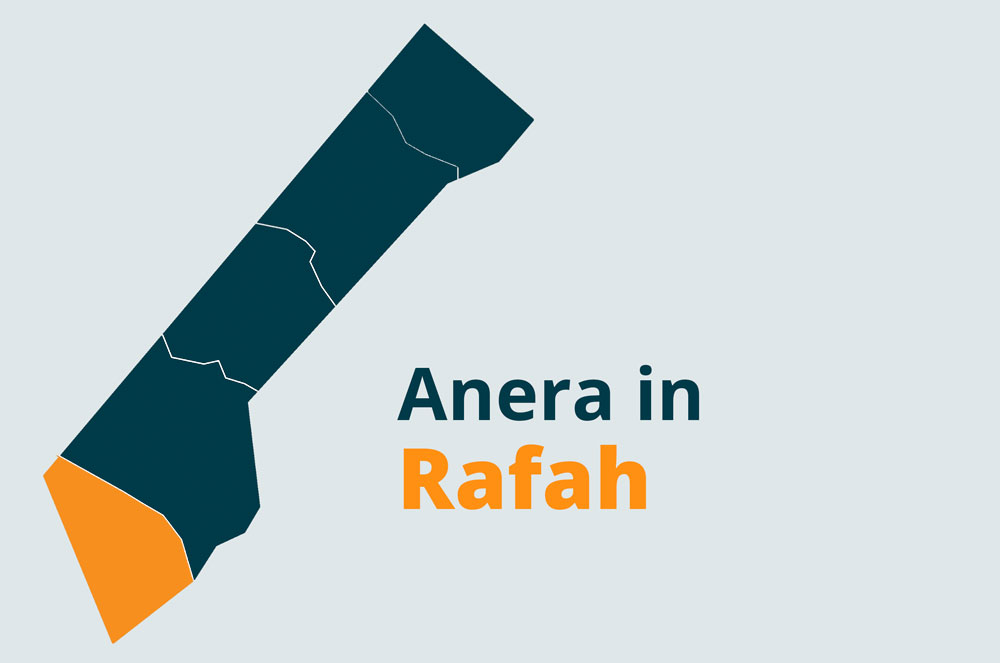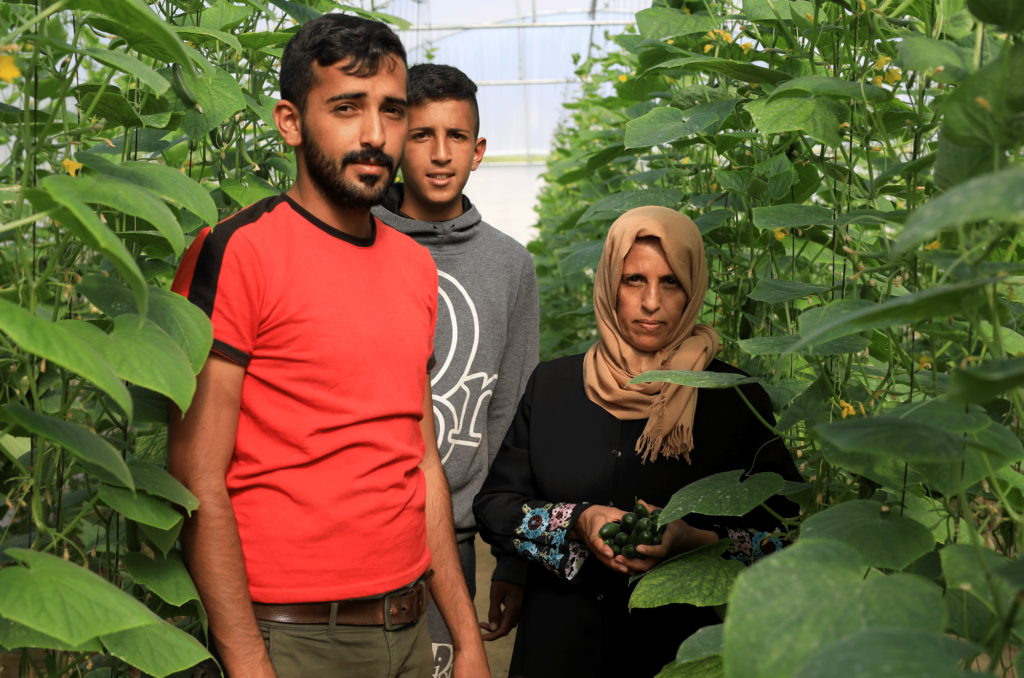Sep, 2016
The health benefits of sweet potatoes are well known around the globe.
But the healthy and delicious snack has even more value for some families in Palestine because sweet potato farming in Gaza is especially profitable for local farmers.
Atta Zoerob is a sweet potato farmer from Rafah in southern Gaza. He was born into a family with a deep love of agriculture who have farmed in Gaza for decades. “It’s not something I chose, it comes naturally since childhood,” said Atta. “All of my family appreciates nature.”
Farming can be a struggle, said Atta, due to Gaza’s bleak economy and the soaring prices of seeds and equipment. “The closure of Gaza’s borders means we have very little chance of exporting our produce,” he explains. “We can only sell it in the local market.” War has also taken a toll on the Gaza agriculture industry. “When my land was destroyed in the 2014 war, I had to quit what I was passionate about,” he said.
Through a land restoration project, Anera has helped 399 farming families and bring life to 214 acres of land that had been abandoned or laid fallow for years. The project also provides farmers with agricultural tools, installation of a drip irrigation system as well as training on best practices in farming.


The soil in Gaza is well-suited to growing sweet potatoes, but farmers hesitate to grow the crop because of the risks due to high costs. “The seedlings are expensive and the compost is as well,” said Atta. “They also need daily weeding and irrigation every other day.”
Anera provided some compost for farmers to get started and implemented training and awareness sessions with the participating farmers. Then, Anera agronomists and local farmers formed a plan to harvest the crops at a time of year when they typically run short in local markets, increasing profitability. “At harvest time, we reap the benefits of hard work,” said Atta. “It’s an amazing feeling.”
Sweet Potatoes Make Healthy Meals
Aysha El Shaer wakes up early in the morning on her farm near Rafah. She does her daily household chores, dresses her kids and sends them to school on a tuktuk. She feeds her chickens and sheep, and then tends to her farm. “I enjoy spending my day there among my crops,” she said.
At noon, she returns to feed leftovers to her sheep and and then picks fresh potatoes to prepare an after-school meal for her children. “The first thing the kids do when they return from school is eat the baked sweet potatoes. I keep the leftovers to feed my sheep in the backyard,” she said.
Before sunset, the family gathers at the farm and irrigates the crops. Aysha’s large family − she lives with her six sons and their children − helps look after the farm.
Under the shadow of a shed, the family huddled around Aysha. “They call me the manager and bookkeeper,” she smiled. “We cultivated 10 tons of sweet potatoes and made almost $6,700 to cover our needs for the coming year. We’re going to get school uniforms, textbooks and new seeds for the next season.” She also has her own recipe for sweet potato pie. “The kids deserve a nice sweet treat.”
After this success, Aysha is excited to experiment with new crops. Next up, she’s decided to plant onions for the winter harvest.









